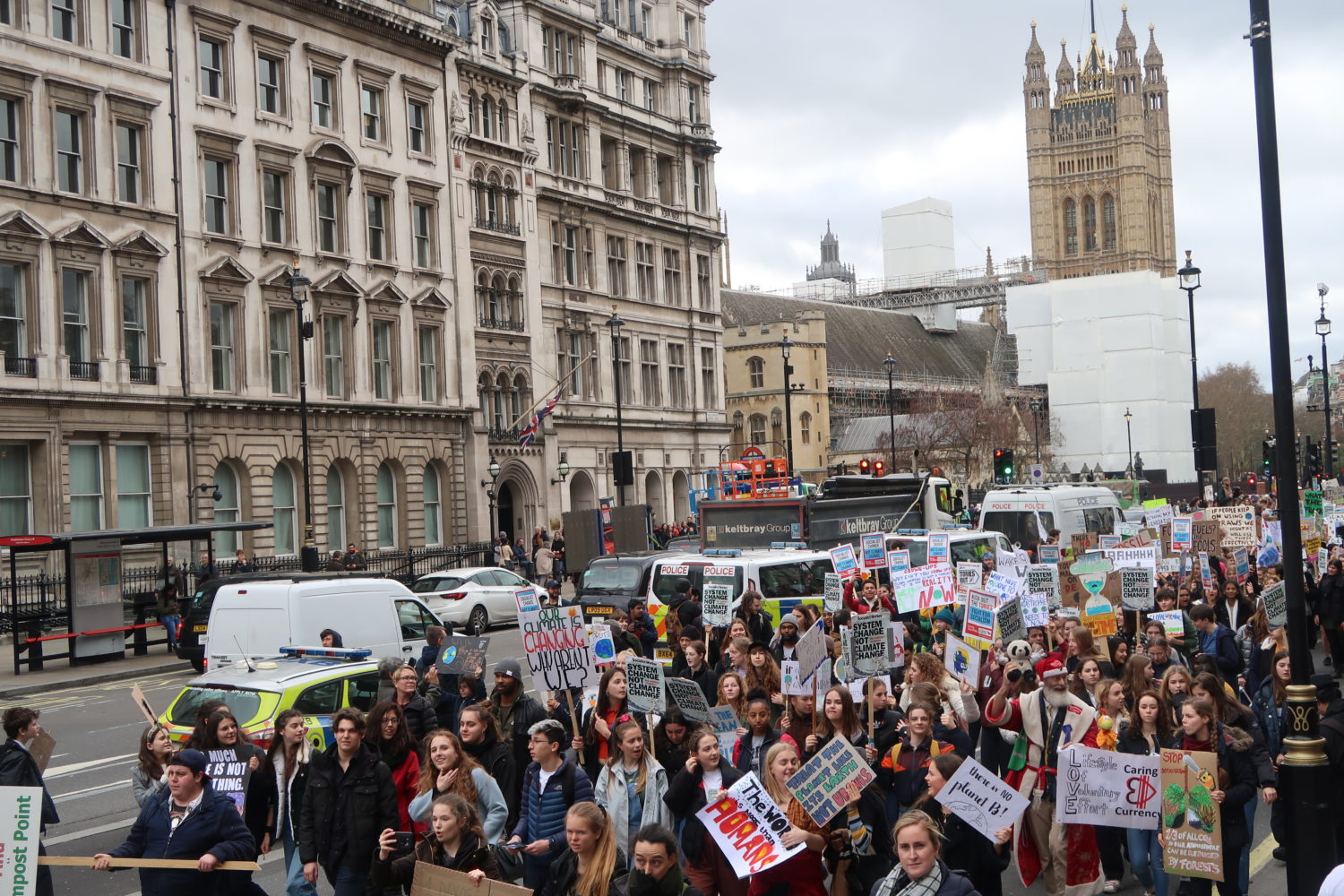
13 Dec A new curriculum fit for our times
Academics are calling for a radical reform of the current curriculum – one that reflects the social and environmental challenges of today’s world.
Italy’s education minister recently announced that starting September 2020, all its public schools will require students in every grade to study climate change and sustainability. Lorenzo Fioramonti, who has previously been criticised for encouraging students to join climate protests instead of attending classes, aims “to make sustainability and climate the centre of the education model.”
This sort of radical reformation of the curriculum is something academics across the UK are attempting to facilitate. In an increasingly volatile, uncertain and complex world, universities are finding themselves in a unique position to develop students equipped to deal with the social and environmental challenges of today. Academics have a role to support students in understanding these challenges and provide them with an opportunity to accelerate a new way forward.
Ria Dunkley, a Lecturer in Geography, Environment and Sustainability at the University of Glasgow, is all too familiar with the challenges and push back: “I think there’s a lot of people who think I am completely mad for suggesting that we need that sort of reformation.” When researching education for sustainability in higher education, she has often found that many universities aren’t willing to engage and institute this sort of change.
“I think that it is often imagined that ‘childhood’ is a stage of life that is protected from societal influences. Yet this represents a utopian view of society – and is often used by critics as a reason not to try to make progress towards reforming curricular approaches and indeed, whole school environments.”
At the moment, climate change and sustainability topics are seen as a supplement to the current curriculum. Ria says there’s a need to change. “There is a disconnect to the environment which has led to all kinds of ecological destruction […] what we’re getting at university level now are lots of students coming through a system which is not giving them a lot of information about the ecological emergency.”
“At a university level, we have a responsibility to deliver the higher level of learning about climate change and sustainability in particular.” Currently, the curriculum is developed based on what individuals feel are the important issues to be dealt with at that particular moment. “It may be related to policy or economic drivers or on historical influences. If you want to change the structure of how things are taught, there’s a need to get staff across the board engaged with these topics. They need to feel that they are important and need to be addressed within an overly saturated curriculum already.”
Other researchers who have focused attention on the topic are Kate Raworth, Ollie Ryan and Isadora Ferreira who wrote a report on how universities are integrating climate change awareness into teaching. They found five broad approaches are being taken currently; focused degree programmes which focus specifically on the topic, focused research centres such as dedicated institutes, optional modules and extra qualifications, university-wide integrated initiatives and trans-university integrated initiatives.
An example of a dedicated institute is the Cities and Sustainable Places Research Institute at the School of Sciences at Cardiff University. Research Fellow Dr Avid Mehmood has been actively working to push for greater environmental and sustainability education at university level: “Currently, most of the curriculum assumes certain level of environmental awareness but does not go far to help university students co-create and co-produce viable alternatives in their relevant disciplines and address the particular needs of local communities.”
Avid, alongside his research staff, have been working with community gardens in Cardiff to promote student engagement. Knowledge can be shared with local communities about harvesting, growing and cooking. These small steps once sustained “can be scaled and lead to behaviour change.” They can “address the climate challenges, and try to deal with other local and global emergencies,” such as flooding, drought and heatwaves.
“It is obvious from the recent global success of Extinction Rebellion and similar activist-led localised environmental movement that the youth is much more poised to make a difference and is pushing for the social, economic, environmental and political agendas in the direction of preserving the Earth’s resources for the future generations.” However, there is “a stronger need to help build capacity through higher education by making sustainability and climate change-related advanced educational and training elements integral to all disciplines be it medical, engineering, humanities or social sciences.”
As Dr Mathew Adams, Principal Lecturer in Psychology at the University of Brighton, says: “It is as much about our present and future as it is about becoming equipped with the relevant interdisciplinary tools.” He sees the environmental crisis as an opportunity in a way, “to consider, individually and collectively, what we do find value and meaning in. What do we want to hang on to in an imagined future? What must we let go?”
This piece is one of three I have chosen to submit to the BBC Student Journalist of the Year competition. The criteria is as follows:
- Embody the BBC values of impartiality, trustworthiness and excellence.
- Serve the needs and interests of a student audience.
- Be three examples of work produced during the time on the module – and they had to be original.
- Be published in media aimed either solely or predominantly at a student audience.
Photo: Young people marching on the streets of London for the climate. Photo: Aimee Gabay, March 15, 2019.

